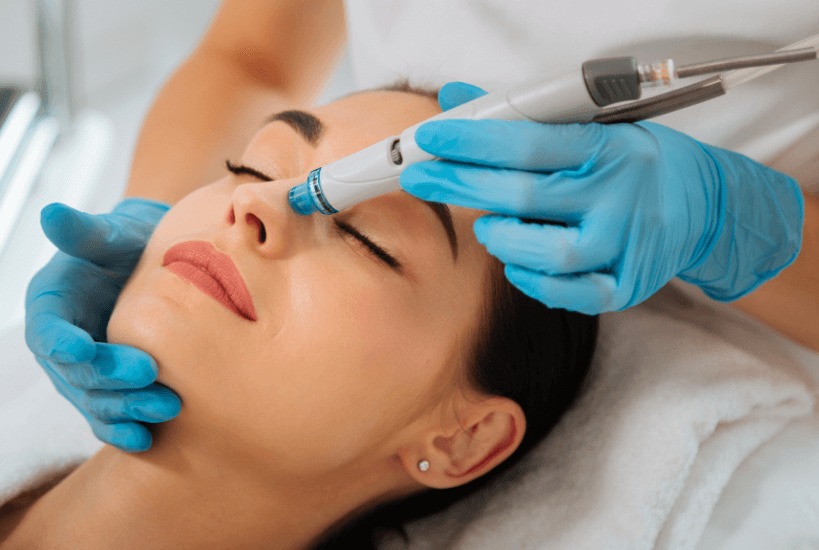Acne is a common skin condition that affects millions of people worldwide, causing distress and impacting self-esteem. Understanding the underlying causes, available treatments, and preventive measures is crucial for effective management. This comprehensive guide explores the multifaceted nature of acne, providing insights into its origins and offering practical advice for achieving clearer skin.
1. What Is Acne? An Overview
Acne is a skin condition characterized by the appearance of pimples, blackheads, whiteheads, and cysts, primarily on the face, neck, shoulders, and back. It occurs when hair follicles become clogged with oil, dead skin cells, and bacteria, leading to inflammation and breakouts.
Acne is not only a cosmetic concern but can also cause discomfort and, in severe cases, lead to scarring. Despite being most common among teenagers due to hormonal changes, acne can affect people of all ages, making it essential to understand its causes and treatments.
2. The Science Behind Acne: Understanding Its Causes
Acne develops when sebaceous glands, located at the base of hair follicles, produce excessive amounts of sebum. This oily substance, while crucial for lubricating the skin, can mix with dead skin cells and clog pores. When these clogged pores become infected with bacteria, they result in inflammation, leading to various types of acne lesions.
Several factors contribute to the overproduction of sebum and the clogging of pores. Hormonal changes, particularly during puberty, menstruation, and pregnancy, are significant contributors. Moreover, genetics play a role, as a family history of acne can increase the likelihood of developing the condition.
3. Hormones and Acne: A Complex Relationship
Hormones significantly influence acne development, with androgens being the primary culprits. Androgens are male hormones that are present in both men and women, stimulating the sebaceous glands to produce more sebum. During adolescence, androgen levels rise, which explains the prevalence of acne among teenagers.
However, hormonal imbalances can also trigger acne in adults. Conditions such as polycystic ovary syndrome (PCOS) and fluctuations due to menstrual cycles or pregnancy can lead to breakouts. Understanding the hormonal link to acne can help in tailoring effective treatment plans that address these underlying issues.
4. Diet and Acne: Myth or Reality?
The relationship between diet and acne has been a subject of debate for years. While it was once considered a myth that certain foods cause acne, recent studies suggest a correlation between diet and skin health. High-glycemic foods, dairy products, and excessive sugar intake have been linked to increased acne severity.
Consuming a balanced diet rich in whole foods, fruits, vegetables, and lean proteins can help manage acne. Additionally, staying hydrated and limiting the intake of processed foods and sugary beverages can promote healthier skin.
5. Effective Acne Treatments: Finding the Right Solution
Treating acne requires a personalized approach, as what works for one person may not be effective for another. Over-the-counter treatments, such as benzoyl peroxide and salicylic acid, are commonly used to reduce inflammation and clear clogged pores. These ingredients are available in various forms, including cleansers, creams, and gels.
For more severe cases of acne, dermatologists may prescribe oral medications such as antibiotics or retinoids. These treatments help reduce bacteria and inflammation or regulate the shedding of dead skin cells. Consulting a professional at the best skin care clinic in Calicut can provide access to tailored treatments and advanced skincare options.
6. Natural Remedies for Acne: Do They Work?
In addition to conventional treatments, many people turn to natural remedies for acne management. Ingredients like tea tree oil, aloe vera, and honey have antibacterial and anti-inflammatory properties that can help reduce acne symptoms. However, the effectiveness of these remedies varies from person to person.
While natural remedies can be beneficial for mild cases of acne, they may not be sufficient for more severe or persistent conditions. It is always advisable to consult with a dermatologist before trying new treatments, especially if you have sensitive skin or underlying skin conditions.
7. Prevention Strategies: Keeping Acne at Bay
Preventing acne involves adopting a consistent skincare routine and making lifestyle changes. Cleansing the skin twice daily with a gentle cleanser can help remove excess oil and prevent clogged pores. Exfoliating regularly can also remove dead skin cells, reducing the likelihood of breakouts.
Moreover, it is important to avoid touching the face frequently, as this can transfer bacteria and oils that may exacerbate acne. Using non-comedogenic skincare products, which are less likely to clog pores, and keeping hair clean and away from the face can further help in preventing acne.
8. The Role of Stress in Acne Development
Stress is another factor that can contribute to acne flare-ups. When the body is stressed, it produces cortisol, a hormone that can increase oil production and lead to breakouts. Managing stress through techniques such as mindfulness, yoga, and regular exercise can help reduce acne symptoms.
Additionally, getting enough sleep and maintaining a balanced lifestyle are crucial for overall skin health. Poor sleep and a hectic lifestyle can worsen acne, making stress management an essential aspect of acne prevention.
9. Professional Help: When to See a Dermatologist
While mild acne can often be managed with over-the-counter products and home remedies, more severe or persistent cases may require professional intervention. Consulting with a dermatologist can provide a clearer understanding of your skin type and the most effective treatment options available.
If you are in Calicut and struggling with acne, consider visiting the best skin care clinic in Calicut. A professional evaluation can help identify any underlying conditions contributing to acne and provide tailored treatment plans to help you achieve clearer, healthier skin.
Conclusion: Achieving Clearer Skin Through Knowledge and Care
Acne is a complex condition with various contributing factors, including hormones, diet, stress, and genetics. Understanding these factors and implementing effective treatments and preventive measures can significantly improve skin health. Whether opting for conventional treatments, natural remedies, or professional care, the key to managing acne lies in consistency and a proactive approach. By staying informed and taking action, you can achieve clearer skin and boost your confidence.
Acne management is a journey that requires patience and perseverance. However, with the right knowledge and guidance from professionals at the best skin care clinic in Calicut, achieving clear, healthy skin is within reach.



